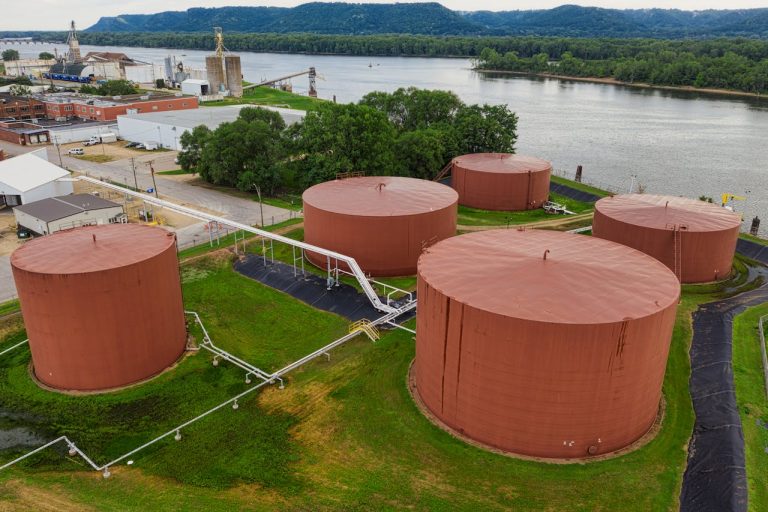Oil and Gas Project Management Course

| Date | Format | Duration | Fees (USD) | Register |
|---|---|---|---|---|
| 05 Jan - 07 Jan, 2026 | Live Online | 3 Days | $2625 | Register → |
| 02 Feb - 06 Feb, 2026 | Live Online | 5 Days | $3785 | Register → |
| 26 Apr - 14 May, 2026 | Live Online | 15 Days | $11515 | Register → |
| 24 May - 04 Jun, 2026 | Live Online | 10 Days | $7735 | Register → |
| 06 Jul - 10 Jul, 2026 | Live Online | 5 Days | $3785 | Register → |
| 10 Aug - 18 Aug, 2026 | Live Online | 7 Days | $5075 | Register → |
| 11 Oct - 22 Oct, 2026 | Live Online | 10 Days | $7735 | Register → |
| 02 Nov - 06 Nov, 2026 | Live Online | 5 Days | $3785 | Register → |
| Date | Venue | Duration | Fees (USD) | Register |
|---|---|---|---|---|
| 12 Jan - 16 Jan, 2026 | Paris | 5 Days | $6305 | Register → |
| 16 Feb - 20 Feb, 2026 | Abu Dhabi | 5 Days | $5775 | Register → |
| 29 Mar - 31 Mar, 2026 | Dubai | 3 Days | $4680 | Register → |
| 15 Jun - 19 Jun, 2026 | Vienna | 5 Days | $6305 | Register → |
| 10 Aug - 21 Aug, 2026 | Singapore | 10 Days | $13175 | Register → |
| 21 Sep - 02 Oct, 2026 | Dubai | 10 Days | $11085 | Register → |
| 19 Oct - 06 Nov, 2026 | Accra | 15 Days | $13500 | Register → |
| 16 Nov - 20 Nov, 2026 | Mauritius | 5 Days | $5575 | Register → |
Did you know that organisations implementing comprehensive oil and gas project management frameworks achieve 20-30% reduction in project overruns through systematic cost estimation models and risk management strategies? This compelling statistic underscores the critical importance of strategic project management in today’s volatile energy markets.
Course Overview
The Oil and Gas Project Management Course by Alpha Learning Centre is meticulously designed to equip professionals with essential skills in strategic planning, cost management, and risk mitigation specific to upstream operations. This course focuses on regulatory compliance frameworks, stakeholder engagement strategies, and technology integration to ensure participants can effectively navigate the complex landscape of oil and gas project delivery.
Why Select This Training Course?
Selecting this Oil and Gas Project Management Course offers numerous advantages for professionals involved in upstream operations, HSE management, and project engineering. Participants will gain advanced knowledge of critical path scheduling, earned value management, and advanced risk analysis techniques. The course provides hands-on experience with state-of-the-art digital monitoring systems and predictive analytics tools, enabling attendees to optimise their project execution strategies effectively.
For organisations, investing in this training enhances overall project delivery efficiency and reduces operational risks. By ensuring that personnel are well-trained in HSE management protocols and regulatory compliance frameworks, organisations not only protect their assets but also build sustainable practices. Research shows that the World Bank’s infrastructure project guidelines demonstrate how activity-based costing and Monte Carlo simulations enhance financial control while managing exploration and operational risks in volatile energy markets. Integration of digital monitoring systems and predictive analytics further optimises resource allocation across upstream operations.
Individuals who complete this course will benefit from enhanced career prospects as they become more valuable assets in their respective fields. The skills acquired through this training can lead to professional growth and increased responsibilities within their organisations. Studies indicate that professionals gain mastery in critical path scheduling, earned value management, and advanced risk analysis techniques essential for senior project roles. World Bank case studies highlight how expertise in stakeholder engagement and regulatory navigation positions project engineers for leadership positions in multinational energy corporations.
Transform your oil and gas project management capabilities – Register now for this critical advanced training programme.
Who Should Attend?
This course is suitable for:
- Project engineers
- Operations managers
- HSE specialists
- Procurement officers
- Financial analysts
- Drilling supervisors
- Contract administrators
What are the Training Goals?
This course aims to:
- Enhance project execution in oil and gas
- Improve risk management for upstream projects
- Optimise cost control strategies
- Strengthen stakeholder coordination skills
- Develop expertise in regulatory compliance
- Foster efficient resource allocation
- Enable robust performance monitoring
How will this Training Course be Presented?
The Oil and Gas Project Management Course employs a comprehensive and innovative approach to ensure maximum knowledge retention and skill development. Expert-led instruction from seasoned industry professionals forms the core of the course, providing up-to-date insights into modern project management techniques and practical applications for today’s energy sector.
The course utilises a blend of theoretical understanding and practical applications, allowing participants to apply their knowledge to realistic scenarios. Advanced educational methodologies create a personalised and engaging learning journey through:
- Case studies from oil and gas projects
- Interactive risk simulation workshops
- Expert-led technical discussions
- Digital tools for project tracking
- Group exercises for problem-solving
- Peer reviews for best practices
Join us now and elevate your oil and gas project management expertise to new heights!
Course Syllabus
Module 1: Strategic Planning for Oil and Gas Projects
- Align with corporate objectives
- Develop execution plans
- Use decision tree analysis
- Incorporate reservoir data
- Assess geopolitical risks
- Integrate stakeholder priorities
- Leverage planning software
- Ensure plan scalability
Module 2: Cost Management in Upstream Projects
- Build cost estimation models
- Apply activity-based costing
- Use Monte Carlo simulations
- Monitor cost variances
- Evaluate drilling cost drivers
- Integrate contingency budgets
- Analyse lifecycle costs
Module 3: Risk Management in Oil and Gas Operations
- Identify exploration risks
- Assess operational risks
- Use probabilistic models
- Develop mitigation strategies
- Monitor risks digitally
- Evaluate project insurance
- Integrate HSE protocols
- Analyse supply chain risks
- Apply fault tree analysis
- Align risks with goals
Module 4: Regulatory Compliance and Permitting
- Navigate international regulations
- Ensure compliance standards
- Manage permitting timelines
- Evaluate regulatory risks
- Incorporate compliance audits
- Align with local requirements
Module 5: Procurement and Supply Chain Management
- Draft supplier contracts
- Use e-procurement systems
- Evaluate supply chain risks
- Monitor supplier performance
- Optimise remote logistics
- Integrate just-in-time inventory
- Assess vendor reliability
- Manage procurement disputes
Module 6: HSE Management in Project Execution
- Develop HSE plans
- Integrate safety metrics
- Use digital HSE monitoring
- Evaluate incident causes
- Implement emergency protocols
- Assess health risks
- Align with regulations
Module 7: Stakeholder Engagement in Oil and Gas Projects
- Map stakeholder networks
- Design community consultations
- Manage government relations
- Use feedback for alignment
- Evaluate social impacts
- Integrate project benefits
- Monitor stakeholder satisfaction
- Balance commercial-public interests
Module 8: Project Scheduling and Control
- Apply critical path method
- Use PERT for optimisation
- Monitor schedules digitally
- Evaluate schedule variances
- Manage resource levelling
- Integrate schedule risks
- Align with milestones
Module 9: Performance Monitoring and Reporting
- Design KPI dashboards
- Use earned value metrics
- Analyse drilling data
- Integrate real-time reporting
- Evaluate efficiency ratios
- Assess downtime impacts
- Monitor scope creep
- Use predictive analytics
- Align with objectives
- Integrate lessons learned
Module 10: Technology Integration in Project Management
- Leverage IoT monitoring
- Use digital twin simulations
- Apply AI maintenance
- Integrate blockchain transparency
- Evaluate cybersecurity risks
- Assess drone inspections
- Use cloud collaboration
- Monitor data interoperability
- Align tech with goals
- Manage adoption risks
Module 11: Decommissioning and Asset Management
- Develop decommissioning plans
- Estimate closure costs
- Assess asset residual value
- Manage facility dismantling
- Use digital tools for tracking
- Evaluate contractor performance
- Align with regulatory standards
- Optimise asset lifecycle
- Monitor decommissioning progress
- Integrate cost control measures
Training Impact
The impact of oil and gas project management training is evident through various real-world case studies and data, which demonstrate the effectiveness of structured programmes in enhancing project outcomes and operational performance.
Research indicates that organisations implementing structured oil and gas project management training programmes have demonstrated measurable benefits in both delivery efficiency and cost reduction. A case study from the World Bank Energy Infrastructure Portfolio showed that deploying comprehensive project management frameworks integrating strategic planning, risk management, and stakeholder engagement across multiple oil and gas infrastructure projects achieved a 28% reduction in project delays and enhanced stakeholder satisfaction through structured community consultations and transparent performance monitoring.
These case studies highlight the tangible benefits of implementing advanced oil and gas project management techniques:
- Improved project delivery efficiency through strategic planning and risk management frameworks
- Enhanced operational safety through IoT monitoring and digital twin simulations
- Increased equipment efficiency through AI-powered predictive maintenance systems
- Strengthened regulatory compliance through systematic HSE management protocols
By investing in this advanced training, organisations can expect to see:
- Significant improvement in project delivery performance and cost control
- Improved ability to handle complex upstream operations and geopolitical risks
- Enhanced decision-making capabilities through digital monitoring and analytics
- Increased competitiveness through comprehensive oil and gas project management strategies
Transform your career and organisational performance – Enrol now to master Oil and Gas Project Management!
FAQs
4 simple ways to register with Alpha Learning Centre (ALC):
Website:
Log on to our website www.alphalearningcentre.com. Select the course you want from the list of categories or filter through the calendar options. Click the “Register” button in the filtered results or the “Manual Registration” option on the course page. Complete the form and click submit. Telephone:
Call +971 58 102 8628 or +44 7443 559 344 to register. E-mail Us:
Send your details to [email protected]. Mobile/WhatsApp:
You can call or message us on WhatsApp at +971 58 102 8628. Believe us; we are quick to respond to.
Yes, besides English, we do deliver courses in 17 different languages which includes Arabic, French, Portuguese, Spanish—to name a few.
Our course consultants on most subjects can cover about 3 to maximum 4 modules in a classroom training format. In a live online training format, we can only cover 2 to maximum 3 modules in a day.
Our public courses generally start around 9:30am and end by 4:30pm. There are 7 contact hours per day.
Our live online courses start around 9:30am and finish by 12:30pm. There are 3 contact hours per day. The course coordinator will confirm the Timezone during course confirmation.
A valid ALC ‘Certificate of Training’ will be awarded to each participant upon successfully completing the course. Accredited certificates from HRCI, PMI, CPD, IIBA are also available upon request and additional fees.








